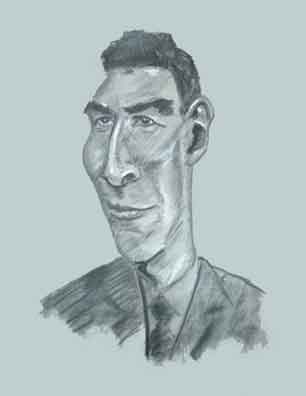J. Robert Oppenheimer
1904 - 1967

For better or worse, J. Robert Oppenheimer has gone down in history as the father of the atomic bomb. However, his contributions to fundamental science in physics and chemistry are undisputed. While still a graduate student he had his first breakthrough with the Born-Oppenheimer approximation in 1927 which megasimplified quantum mechanical calculations. Later his research ranged from the atomic to the cosmological, and he was one of the first to predict specific conditions where stars could collapse into black holes. Though he never won a Nobel Prize, that was certainly not due to any dearth of merit, but more from his lack of longevity. But his relatively early death was not from any long term effects of working on the atomic bomb; just too many cigarettes and too much pipesmoking.
Surprisingly for such a pie-in-the-sky theoretician, Robert had a natural, almost effortless, gift for administration. Beginning in the 1920's he soon built up the fledgling physics departments at Berkeley and Caltech into world class research organizations. It was his tenure at Berkeley that brought him to the attention of the blustery (and hefty) then-Colonel (and engineer) Leslie Groves. Toward the end of 1942, Groves had just finished supervising the building of the Pentagon. Now, instead of being given a command in Europe at the general's rank he wanted, he found himself, as he said, babysitting a bunch of eggheads in search of a pipe dream. But he did get his general's star.
Contrary to popular opinion, Robert was not a dove my any means, and he was always in favor of using the bomb on Japan. But later he certainly had misgivings. When he was introduced to Harry Truman he said, "Mr. President, I feel I have blood on my hands". Harry thought Oppenheimer was a "crybaby scientist" and later told an aide he never wanted to see him in his office again.
Charcoal on Tinted Paper with Pastel Highlights.